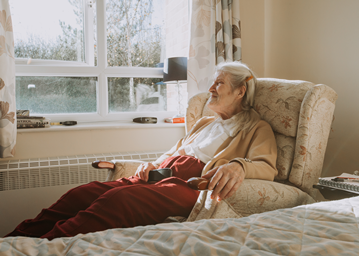Adult Social Care Charging Reform
Visit Gov.uk to find out more about the reform.
New plans were announced by the government in September 2021 for adult social care reform in England, which has now become law in the Health and Care Act 2022.
There are three key aspects to the reforms that may affect those who receive social care.
This includes a lifetime cap on the amount you will need to spend on your personal care, alongside a more generous means test for receiving financial support from the council.
Capital Limits
The council typically carries out an assessment to determine the amount of money you must contribute toward your care costs at the point you start to receive care.
Your contribution is determined by calculating your income (private and state pension) and capital (investments, savings, and properties) against a set of national criteria.
As a general rule:
- any council resident that currently has savings and assets that total more than £23,250 will be required to make the maximum contribution towards their care
- if your assets and savings total less than £14,250, then the amount you're obliged to contribute toward your care is based on your income
- if your assets and savings are between those two figures, you will be asked to make a contribution towards the cost of your care 0 which is lower than the maximum amount, based on your exact financial position
New Capital Limits
From October 2023, the government plans to introduce new capital thresholds:
- the upper capital limit (UCL), the point at which you're no longer eligible to receive financial support from the council, will rise to £100,000 from the current £23,250
- the lower capital limit (LCL), the threshold below which you will not have to pay anything for your care from your assets, will increase to £20,000 from £14,250
If your assets and savings fall between those two figures then like today, you will be asked to make a contribution to the cost of your care - which is lower than the maximum amount, based on your exact financial position.

Cap on Care
The government is introducing an £86,000 cap on care from October 2023. This CAP is the maximum amount that anyone will be asked to contribute over their lifetime for care received from Social Care Services.
Therefore, if you're making any contribution toward the cost of your care and you've paid a cumulative total of £86,000, you won’t be required to make any further payment toward your care cost. The council will make arrangements for your care to continue free of charge from that point.
We will create a 'social care account' for you to track your contributions, adding and totaling each type of care across the years to help you understand your contributions and current progress toward the £86,000 care cap.
The ‘Social Care account’ will only start in October 2023 at which point your total - or ‘balance’ - will be at zero. So any contributions towards the cost of your care prior to that date will not be included in your starting total.
If you're in Residential Care, you will be required to continue paying for your daily living costs (DLCs) after you’ve reached the £86,000 cap. DLCs are a notional amount to reflect that proportion of residential care fees that are not directly linked to personal care, for example, rent, food and utility bills.
People who pay the full cost of their care
If your total assets and savings are over £23,250 (and post the reform going into force, over £100,000), then you're required to pay the maximum contribution towards the cost of your social care. Many Southwark residents in this situation choose to arrange their own care privately.
From October 2023, the charging reforms will allow people in this position (who pay the maximum contribution towards their cost of care) to ask us to commission their care. The primary reason someone may choose this option is to take advantage of a more preferential rate that we (as the council) can arrange that care for.
However, this policy will be applied first to new entrants to residential care homes, with those already in residential care becoming eligible from April 2025. So only people requiring residential care who are not already in one in October 2023, and who have not been in residential care in the 6 months prior to this (unless this residential care was paid for by the NHS or purchased by the individual on a temporary basis) would be eligible in the immediate term.
Summary
The reforms will have a profound effect on how you pay for social care. As we get closer to October 2023, we will be able to tell you exactly what will change in Southwark and how we will help you through the reforms.
It's possible that the government may change the date parts of this reform come into force, such as when residents can ask their local authority to manage their care on their behalf. Please keep checking this page or the government’s web pages to keep up to date with the latest reform information.
If you have any questions relating to the charging reforms, email us at charging.reform@southwark.gov.uk.
Page last updated: 13 January 2023
